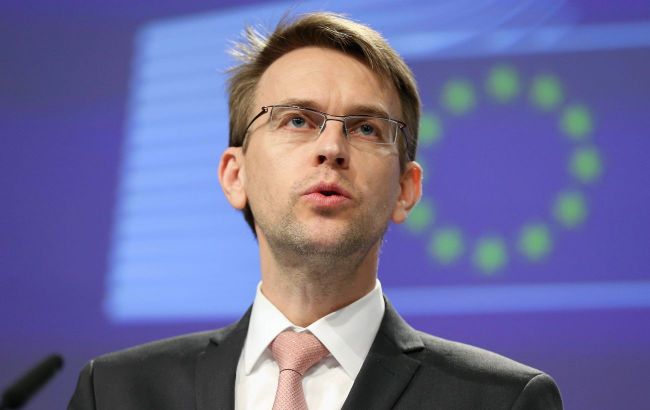EU responds to Mongolia's decision to ignore ICC arrest warrant for Putin
 Photo: EU External Action Service spokesperson Peter Stano (Getty Images)
Photo: EU External Action Service spokesperson Peter Stano (Getty Images)
The European Union expressed regret that the Mongolian authorities decided to welcome Russian President Vladimir Putin and ignored the International Criminal Court's warrant for his arrest, according to a statement by EU foreign policy spokesman Peter Stano.
According to Peter Stano, the EU took note of Putin's visit to Ulaanbaatar despite Mongolia being a party to the Rome Statute of the International Criminal Court (ICC), which should have led to the arrest of the Russian President under the ICC prosecutor's warrant.
"The EU regrets that Mongolia, a State Party to the Rome Statute of the ICC, did not comply with its obligations under the statute to execute the arrest warrant. The EU expresses its strongest support for efforts to ensure full accountability for war crimes and the other most serious crimes in connection with Russia’s war of aggression against Ukraine," Stano stated.
He added that the EU supports the investigations being conducted by the ICC prosecutor regarding the events of the Russia-Ukraine war and urges all states parties to the Rome Statute to fully cooperate on this matter.
Putin's visit to Mongolia
Russian President Vladimir Putin arrived in Mongolia yesterday, September 2, despite the country having ratified the Rome Statute.
This obligates Mongolia to comply with the decisions of the International Criminal Court (ICC), which issued an arrest warrant for Putin over the deportation of Ukrainian children. However, the country did not arrest the Russian President.
The Mongolian government explained that Mongolia cannot arrest Putin, who is on an official visit, as the country is dependent on the import of Russian energy products.
Why Putin traveled to Mongolia and why the country is ignoring the ICC warrant—read more in RBC-Ukraine's material.

